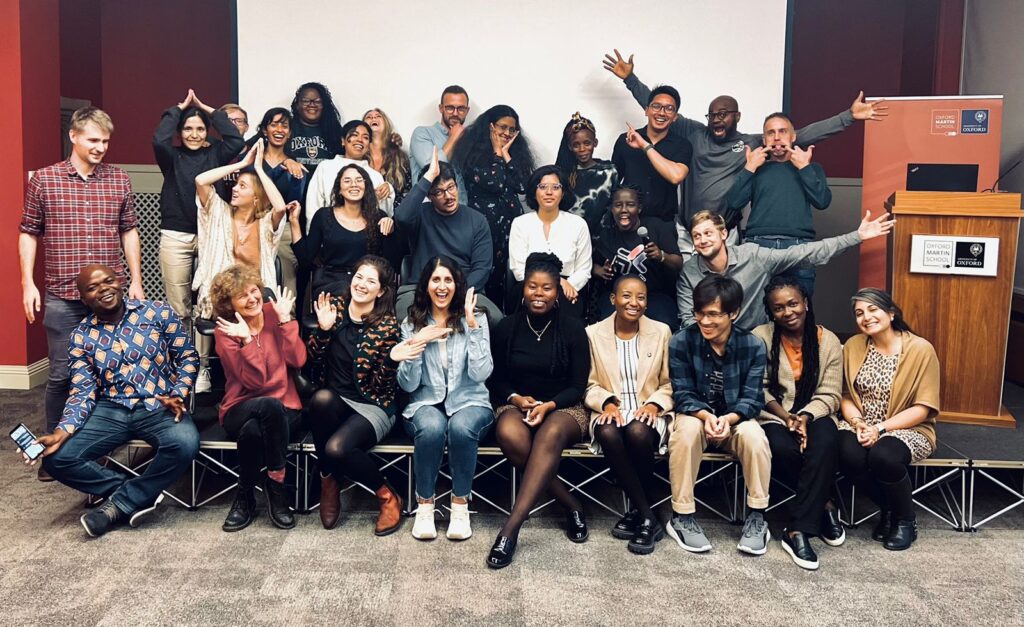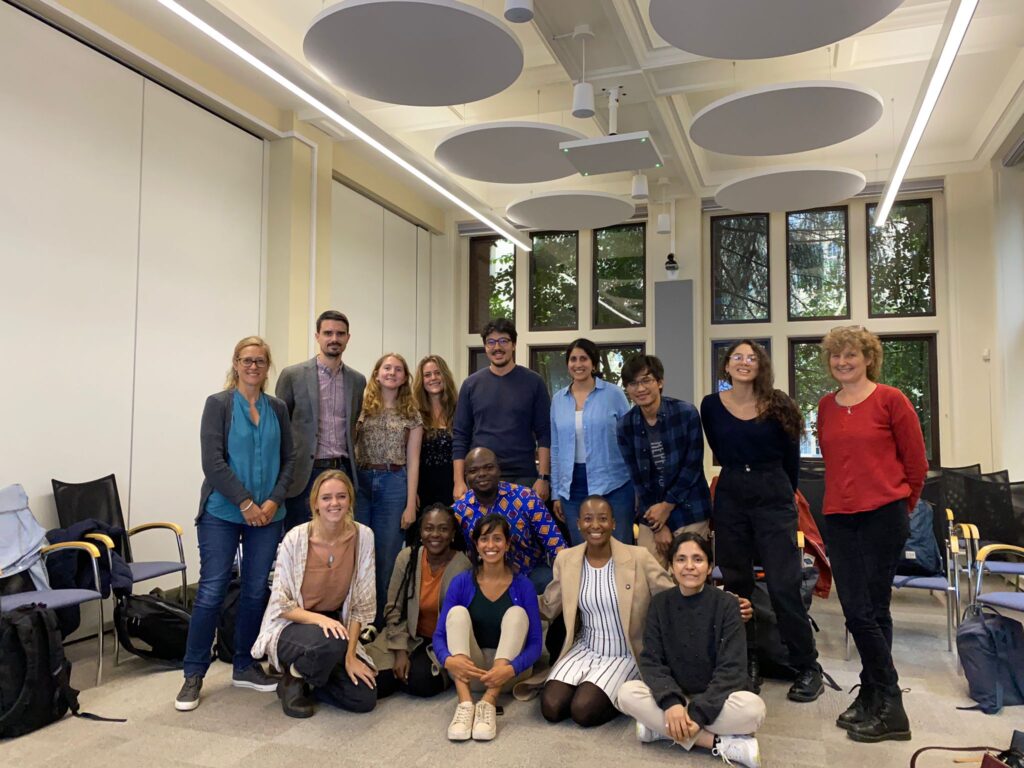University of Oxford
11a Mansfield Rd
OX1 3SZ
UK
The Interdisciplinary Conservation Network (ICN) provides an opportunity for early career researchers to hone key skills, build new networks and work collaboratively to develop cutting-edge research in the field of conservation. ICN 2023 was held in a similar format as the previous ICN, with a virtual component and an in-person workshop. The workshop was held in Oxford between 18 to 20 September 2023, and was supported by virtual theme meetings held before and after the workshop. This ICN emphasised on bringing together a diversity of ECRs, particularly from the Global South, and funds were raised for bursaries to support the participation of X ECRs.
Process
Themes for ICN 2023 were developed by the ICCS theme leaders over December 2022 to February 2023. During this time, co-leaders for each theme (who were not from ICCS) and theme mentors were selected. The call for applications went out in March 2023; this was promoted across social media as well as multiple global and regional networks such as ICCS mailing lists, Conservation Optimism, Nature Positive Universities, YETI mailing list (India) and others (add more here). We received around 350 applications, and reviewing this large volume of applications took longer than expected. Participants were selected and confirmed in May. We had our first virtual inaugural meeting in June.
Organising committee:
ICN 2023 was organised by an committee comprised of the following members:
- ICCS theme leaders: Tim Kuiper, Will Sharkey and Trisha Gupta;
- Non-ICCS theme leaders: Merlyn Nomsa, Lena Jeha and Reshu Bashyal
- ICCS group coordinator: Lucy Radford

ICN 2023 focuses on three different research themes. Each theme will be led by 1-2 ECRs, mentored by 1-3 experts in this field, and will include up to 10 ECR participants. We will allocate one or two bursaries to each theme to enable people who would otherwise not be able to attend to join us. The themes are as follows:
- Legality in the wildlife trade
Global trade of wildlife is a major driver of species decline. How wildlife trade is regulated and what is legal and illegal varies both between and within taxonomic groups and depends on where and how trade occurs. Legal wildlife trade is also not necessarily sustainable. This research theme will focus on wildlife trade, with the following key questions: (1) What is the uncertainty in the legality and sustainability of different types of wildlife trade chains? (2) What are the mechanisms driving the sustainability or unsustainability of trade, across the spectrum of legality? (3) Will clarifying the legality of a trade chain improve its sustainability? We will synthesise cases of wildlife trade across different taxa, scales and geographic regions to answer these questions. This research can be used to inform the better management of wildlife trade globally. Findings will be published as an academic paper to guide researchers, practitioners and policy makers around the world working on issues related to wildlife trade.
This theme was led by Trisha Gupta and Reshu Bashyal, and mentored by EJ Milner Gulland, Dan Challender and Thomasina Oldfield.
- Qualitative impact evaluation in conservation
In the face of global biodiversity loss, robust evaluation is required to understand impacts from conservation interventions. Conservation researchers and practitioners can draw on a range of methods to infer causality about cause and effect. However, the suitability and appropriateness of these methods varies according to context. In complex environmental, social and economic contexts, certain approaches may not be feasible. This research theme will focus on qualitative impact evaluation as a tool for evidence-based decision-making. Offering a means of supporting learning and accountability, qualitative approaches for evaluating impacts receive increasing attention in conservation. We will explore the benefits and challenges of applying different qualitative methods, and will review why, where and how qualitative approaches have been pursued in conservation impact evaluation. The research may culminate in an academic paper, or a set of online resources featuring videos or flow charts.
This theme was led by William Sharkey and Lena Jeha and mentored by Diogo Veríssimo.
- A manifesto for African-led conservation research
Current front-line research on African biodiversity and ecosystems, and the communities whose livelihoods rely on them, is mostly led by non-African institutions. African voices, values, and knowledge systems are often unrecognised or side-lined. How would conservation research and practice on the continent be different if African voices set the agenda? How could this enhance conservation? For this theme, we want to gather a group of forward-thinking conservation researchers to envision a future in which African scientists lead conservation research from conceptualisation and co-production to dissemination and both policy and practice impact. This is a solutions-focused call to action. It is time to establish an ambitious research manifesto and agenda that outlines specific African-led research topics and questions, in order to give critical mass to African research efforts in our field. How can we make this future vision a reality, what steps will get us there? What role do funders and researchers outside the continent have in partnering with this vision? We want to keep the discussion open and gather participant viewpoints as we work towards a high-impact perspective article.
This theme will be led by Timothy Kuiper and Merlyn Nomusa Nkomo and mentored by Eric Nana and Rosie Trevelyan

